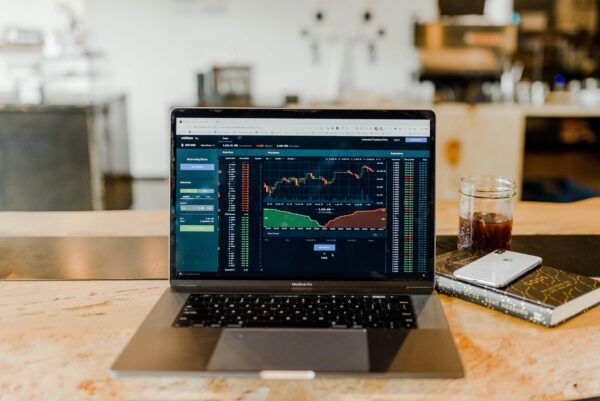Reaching New Highs on Stimulus Expectations
What’s happening now: The S&P 500 hit a new all-time high as investors continue to have faith that Congress and the Fed will pump additional stimulus into the economy (1). Despite initial reports Republicans and Democrats would come together on a second round of stimulus in early August, talks quickly broke down. In response, President Trump issued several executive orders to unilaterally extend stimulus – however, the effectiveness and legality of the executive orders are in serious question. It is not expected for meaningful negotiations to begin again until late August or early September when both the Senate and House are back in session. The pause adds another layer of risk to equity markets that have reached these levels solely on the belief that more stimulus is coming. If a stimulus package does not happen in a timely manner, it could lead to substantial and deep market losses.

Helped by historic federal relief efforts, including direct payments to individuals via the CARES Act, the second quarter saw personal incomes rise at an annualized rate of 7.4% compared to a year prior. This increase in income is in stark contrast to the economy, which declined at an annualized rate of nearly 33% during the same period (2). The disconnect between a damaged economy and an increase in overall income points to a severe risk of market contraction as household income returns to normal, or worse, in the recovering economic environment.
What we think: Although many equity indices have hit all-time highs during the recession, 5 of the 11 S&P 500 sectors were negative year-to-date as the S&P 500 reached all-time highs (3). This means the rally is largely concentrated in areas of the economy that have benefitted from a stay-at-home culture shift, such as technology and home improvement sectors.
Fixed income markets have seen a slight rise in interest rates, creating some level of consternation for investors that moved to bonds for fear of equity market volatility. We continue to expect interest rates to rise even though the Fed has communicated it will keep rates near zero until inflation targets of roughly 2% are met. Overall, we believe fixed income can serve as a “safe haven” from potential equity volatility in the short-term, but that longer-term bond strategies will need to account for a flat to rising interest rate environment.
Gold and silver prices also set an all-time high as investors fear rapid inflation may take hold due to the large amount of stimulus pushed into the economy, and the low yields paid by bonds. (4) Gold and other precious metals have demonstrated a low level of correlation to equities over the past five years, but at all-time highs, we expect a pullback in values if inflation does not rise rapidly in the near term. Nonetheless, we think it’s a good thing that gold may have a spot in portfolio construction going forward if it can maintain low correlations and act as a diversifier.
The Bottomline: We continue to see the entire US equity market is propped up by expectations of another stimulus package. In the very short-term, we expect equity markets to respond positively as that deal gets done, but if it appears the next stimulus package is “watered down” or delayed to the point where economic data begins to move backward, we could see substantial volatility in equity markets. Given the large number of unknowns and the potential magnitude of an equity sell-off, we maintain a defensive stance in portfolios.
- Hajric, Vildana, et al. “S&P 500 (SPX) Rallies to Record High.” Bloomberg.com, Bloomberg, 12 Aug. 2020, bloomberg.com/news/articles/2020-08-12/to-the-brink-and-back-in-175-days-the-s-p-500-rallies-to-record.
- “News Release.” Gross Domestic Product, 2nd Quarter 2020 (Advance Estimate) and Annual Update | U.S. Bureau of Economic Analysis (BEA), Bureau of Economic Analysis, 2020, bea.gov/news/2020/gross-domestic-product-2nd-quarter-2020-advance-estimate-and-annual-update.
- “Sectors & Industries – Performance.” Fidelity, 2020, fidelity.com/eresearch/markets_sectors/sectors/si_performance.jhtml?tab=siperformance.
- Gurdus, Lizzy. “There’s More Pain in Store for Gold and Silver Short Term, Trader Warns.” CNBC, CNBC, 13 Aug. 2020, cnbc.com/2020/08/13/gold-silver-more-pain-in-store-short-term-trader-warns.html.





